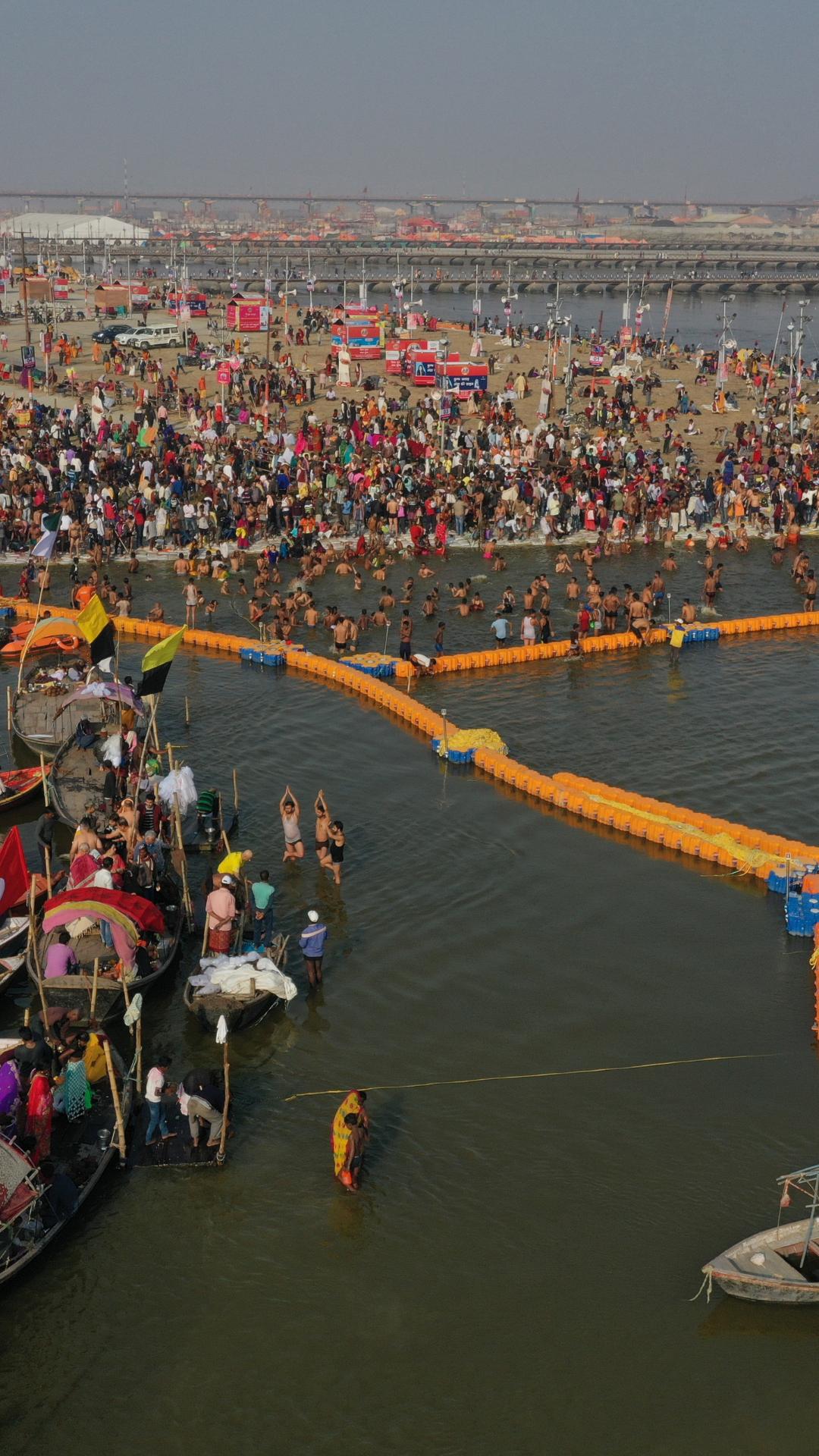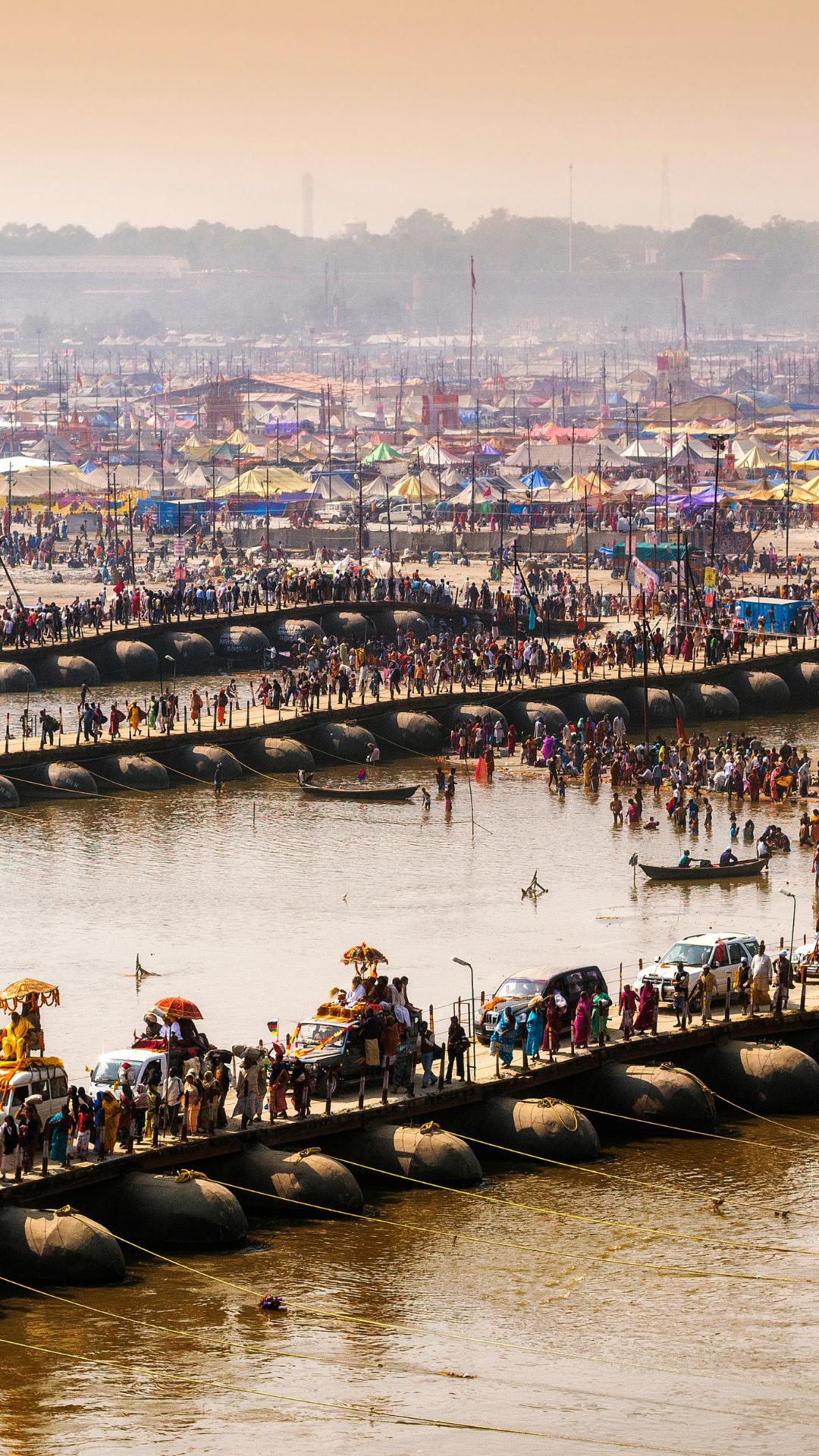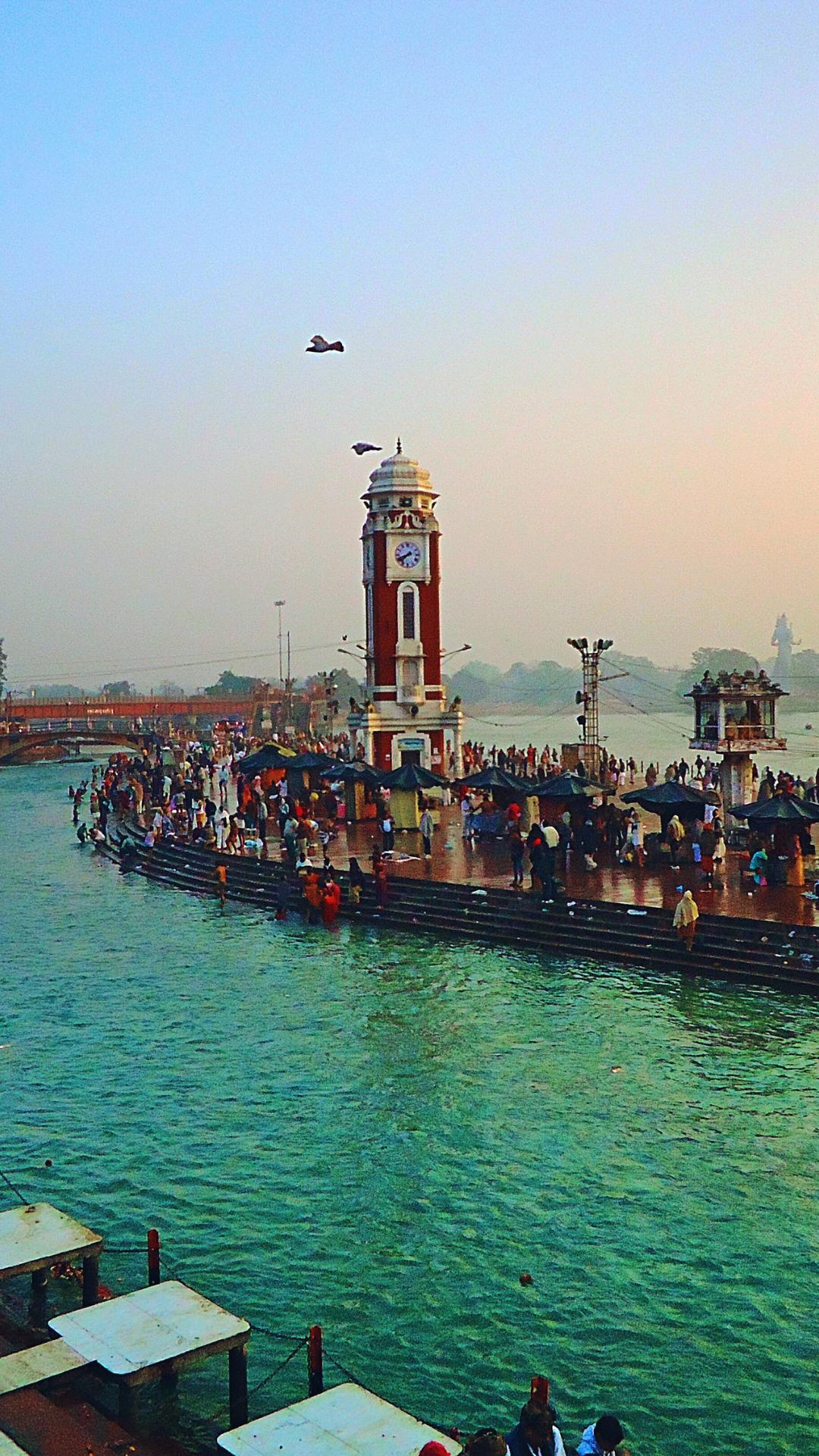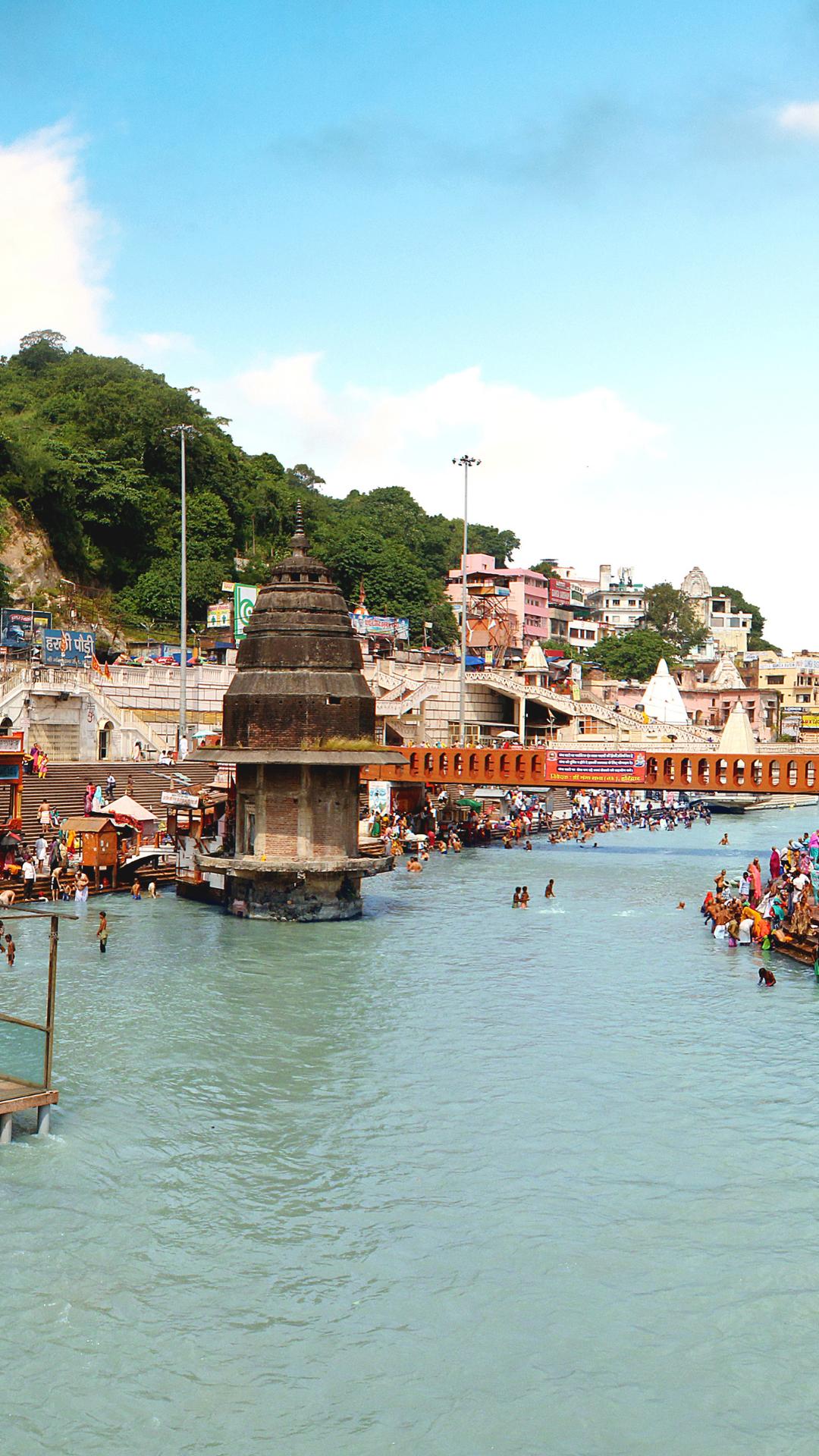
5 Interesting Facts About The Kumbh
India's biggest mela will kick off in Prayagraj on January 13, 2025, and wrap up on February 26, 2025. Here are five fascinating nuggets of information about the Kumbh.

Spiritual Significance
The Kumbh Mela has deep roots in Hindu mythology, symbolising the eternal battle between gods and demons over the pot or kumbh of nectar. The gods were victorious, but in the tussle drops of the nectar or amrit fell at four sacred locations in India where the Kumbh is held.

Four Sacred Locations
- Haridwar on the Ganga
- Prayagraj/Allahabad on the Triveni Sangam of the Ganga, Yamuna, and Saraswati rivers
- Ujjain on Shipra River
- Nasik on the Godavari River
Bathing in these rivers during the Kumbh is a sacred activity every Hindu should aspire to achieve in his/her lifetime and on certain bathing dates as many as 50 million have gathered.

Recognised As Intangible Cultural Heritage
In 2017, the Kumbh Mela was recognised as an Intangible Cultural Heritage of Humanity by UNESCO, given its cultural and spiritual importance. The mela has been the subject of many documentaries by NatGeo, CBS, BBC and more. Siblings losing each other at the Kumbh was once a popular Bollywood theme.
History Of Over Two Millennia
The first written record of the Kumbh festival comes from the accounts of Chinese traveller Xuanzang during the reign of King Harshavardhana. The British rather unfairly imposed a pilgrim tax, during their rule, on those heading to the Kumbh and raised considerable revenue.
The festival is held at different intervals:
- Purna Kumbh: Every 12 years at each location.
- Ardh Kumbh: Every 6 years in Haridwar and Prayagraj.
- Maha Kumbh: Every 144 years in Prayagraj.
- Magh Mela: Annually in Prayagraj.
Holy Men And Their Practices
During the Kumbh Mela, holy men from various Hindu sects, including Nagas, who have renounced clothing; Kalpwasis, who bathe thrice daily; and Urdhwavahurs, who practice severe austerity, come to the festival.